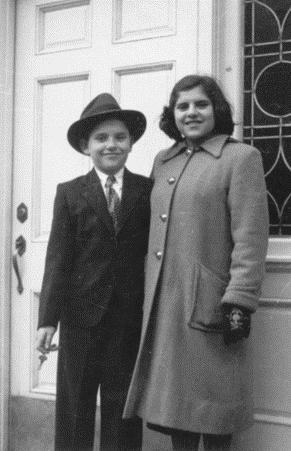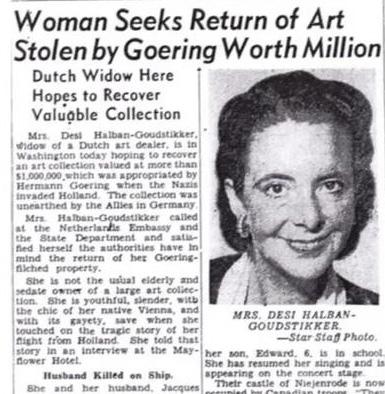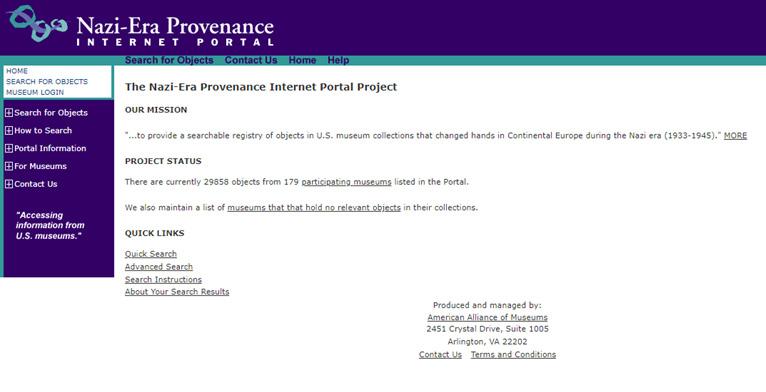Is the History of the Holocaust Under Attack?
I
n October 2021, a startling statement beliefs that continue to be harbored toward was made by a district level administraindividuals of a variety of races, religions, tor in a school district in Southlake, and genders, Holocaust denial persists Texas. Caught on tape during a meeting among all parts of a population regardless with teachers, the administrator advised of socioeconomic status or educational them to provide students with books that levels across a wide ideological spectrum. covered opposing perspectives of the The reasons for this can vary significantly Holocaust stating, “And make sure that if by individual, but it is clear that there is one you have a book on the Holocaust, that you mechanism that is enabling misinformation have one that has an opposing view, that to be spread widely to all segments of the has other perspectives.” The administrator population and that is social media. was referencing a new Texas law that In 2020 the Conference on Jewish required teachers to provide students Material Claims Agency conducted a 50 with multiple perspectives when teaching state survey on Holocaust knowledge controversial topics. Within a few days this of Americans and found that 49 percent administrator’s statement, and the audio clip of Americans under 40 years old were of it, had made national and international exposed to Holocaust denial or distortion news. In response the across social media. In the summer and fall school district quickly of 2020 the social media giant Facebook, released a statement which has almost 3 billion monthly active rebuking the adminis- users worldwide, specifically came under trator’s remark, with intense scrutiny about allowing posts the superintendent on Holocaust denial or distortion on its apologizing to his platform. As a result of mounting pressure district and then Facebook issued a ban on these types of stating, “We recogposts on its popular platform in October nize that there are 2020, yet only three months later an invesSCOTT AUSPELMYER not two sides to the tigation by the Anti-Defamation League Holocaust.” (ADL) that investigated a variety of online The school district had recognized, platforms found that Holocaust denial albeit too late for them to avoid public concontent remained on Facebook in January demnation, that to accept that there are two 2021. The ADL created an “Online Holocaust sides to the Holocaust is, in effect, a form of Holocaust denial. Yes, one may be justified in debating why the Holocaust happened, but one cannot challenge its existence. To suggest that there are “two sides to the Holocaust” is to encourage debate over the merits of its existence. This type of assertion provides a platform for Holocaust deniers to be heard alongside historians who have devoted their life’s work to discussing the facts of the Holocaust or even worse to give Source: www.ADL.org a denier a platform to debate a Holocaust survivor, who is a living testament to the reality of this horrific event in human history. Sadly, Holocaust denial or distortion, and the many forms it takes, is not something that only happens among those labeled by others as “ignorant” or only those who subscribe to particular political viewpoints. Much like the pervasiveness of negative or discriminatory SCCH Summer Institute teachers collaborating on a project.
South Carolina Council on the Holocaust Summer Institute teachers discuss the Holocaust memorial in Memorial Park in Columbia.
Denial Report Card” and Facebook rated a D for the effectiveness of its approach in combatting Holocaust denial or distortion on its platform. While the challenges of combatting online Holocaust denial and distortion, including that on social media, are daunting, experts have already begun creating ways to address these challenges. Within the past year the United Nations and UNESCO convened an advisory group meeting on Holocaust denial and distortion and with the help of the World Jewish Congress are developing educational resources to improve Holocaust education and responses to the issues of Holocaust denial and distortion. As detailed on UNESCO’s website these efforts include “aims to map and raise awareness of contemporary trends of Holocaust denial and distortion and to strengthen educational approaches, pedagogies, and good practices that help to counter its transmission online and in society.” In addition to the work of large international organizations like the United Nations and UNESCO it is important to remember that there are hundreds of Holocaust organizations around the world dedicated to the cause of promoting Holocaust education in their communities. The Association of Holocaust Organizations (AHO) has over 370 members that meet regularly to discuss the latest scholarship in the field as well as to work collaboratively to develop educational programs that can provide important training for teachers and resources for students in states,
Supplement created and paid for by the SOUTH CAROLINA COUNCIL ON THE HOLOCAUST | APRIL 27, 2022
counties, and school districts throughout the United States. The South Carolina Council on the Holocaust is one of the member organizations of the AHO and we continue our dedicated efforts to provide quality professional development opportunities for SC teachers. Our efforts assist teachers in navigating an important historical topic that is clearly addressed in our state’s standards for education. Each year we offer two week long summer institutes for teachers, two one day conferences, online and in-person seminars, and many other professional development opportunities to engage teachers in learning more about the Holocaust and how to teach it appropriately to their students. The SCCH is committed to fulfilling our vision of helping South Carolinians recognize the relevance of the Holocaust and human rights, apply it within their own lives, and work for the improvement of our society. ■ Scott Auspelmyer is the Executive Director of the South Carolina Council on the Holocaust and has 20 years of experience teaching high school social studies in South Carolina.
South Carolina Council on the Holocaust Members Lilly Filler, Chair Don Sloan, Vice Chair Denise Deveaux, Treasurer Marla Palmer, Secretary Leah Chase Eileen Chepenik Brian Day Rachel Hedley Melinda Menzer Johannes Schmidt Joe Wachter Margaret Walden
| HOLOCAUST REMEMBERED
27




















